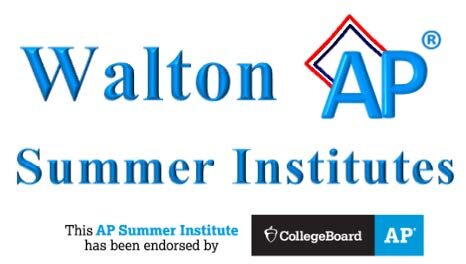Meet your Consultant and read the In-Person APSI Course Description for AP Spanish Language & Culture:
 Parthena Draggett
Parthena Draggett
College Board Endorsed Consultant for AP Spanish Language and Culture
This session is offered in Event 1: June 18-21, 2024
Parthena Draggett has had a long career as a professional educator: 39+ years teaching a wide variety of Spanish and French courses at the secondary and university levels. She is retired from the Community School of Naples, Florida, where she also supervised Pre-K to 12 world languages, building Vertical Alignment and Pre-AP Strategies across languages and levels. Prior to coming to CSN, Parthena had spent 34 years teaching in Ohio, the last 24 at Jackson High School in Massillon, Ohio, where she also served as Department Chair and had founded the AP Spanish Language and Culture and the AP Spanish Literature and Culture programs. An enthusiastic AP and Pre-AP teacher, Parthena also regularly participates in the AP Spanish Language and Culture Reading where she serves as a Table Leader. In addition, she regularly presents at many conferences, including AATSP, ACTFL, FFLA, OFLA, NECTFL, COFLT, ICTFL, FLANC, and of course the AP Annual Conference.
Parthena is the lead author of the AP Spanish Language and Culture textbook, Temas, published by Vista Higher Learning, as well as co-author of Thèmes, for AP French and the accompanying AP
preparation worktexts for both. In addition, she has contributed as a writer and editor of materials for the AP Community Online Annotated Resource Guide. Parthena has represented AP languages on the College Board AP Consultants’ Panel and served on the 2008 AP Spanish Standards Setting Panel She is co-author of the College Board thematic Curriculum Module, El arte – ventana y espejo, used in previous AP Spanish Language and Culture AP Summer Institutes and also has participated in editing and composing sample syllabi for the AP Spanish Language and Culture Course Audit. Parthena has also been a reviewer and contributing author of several AP Spanish publications and is the author of AP SPANISH LANGUAGE Quick Study Guide for Bar Charts, Inc. Also, in her role as Moderator of the College Board AP Spanish Community, Parthena works with AP Spanish teachers from all over the world. She is also serving as part of the AP Annual Conference Planning Committee for July 2024.
Passionate about her work with both students and teachers in the quest for increased proficiency in language communication, Parthena was named as “Ohio’s World Language Teacher of the Year” for 2015. She was also among the first teachers to earn National Board Certification in World Languages Other Than English. Parthena is currently the President of the American Association of Teachers of Spanish and Portuguese, having previously served on the AATSP Board of Directors as Secondary Representative from 2015-2018. She has also been named State Director of the Year for the Sociedad Honoraria Hispánica, as well as many chapter awards and distinctions over the years. In addition, she is a Praxis II Spanish Language Chief Scoring Leader and item writer for
ETS. Parthena maintains membership in ACTFL, as well as FFLA (Florida Foreign Language Teachers Association), and OFLA, Ohio Foreign Language Teachers Association (distinguished
service award and other awards). She earned her B.A. in Spanish and French from the University of Mount Union and her M.A. in Spanish
Parthena Draggett Walton APSI 2024 June 18 – 21, 2024 8:00 AM – 5:00 PM Eastern
Walton High School, 1590 Bill Murdock Road, Marietta, GA 30062
APSI COURSE DESCRIPTION AND TOPICS COLLEGE BOARD REQUIRED APSI TOPICS DENOTED BY * (Essential questions of teacher reflection accompany each topic.)
- This APSI is intended for both new and experienced teachers of AP Spanish Language and Culture, as well as for teachers in levels prior to AP, working on vertical alignment and wishing support students’ preparation for the AP year. Using the AP Spanish Curriculum and Exam Description as a guide, we will work together to examine and reflect on core elements of the AP Spanish Language and Culture course and exam, putting it all into practice throughout the week. Key focus areas and learning outcomes:
- *Course and Exam Description (CED) and Course Planning: ¿Por qué es importante y cómo nos apoya en el deseo de llevar a los estudiantes a mejorar sus destrezas y preparación para mayo?
- AP Course Introduction (and instructional design): Themes, Contexts, Culture, Authentic Resources, Modes of Communication, Scaffolding the Skills: ¿Cómo enseñamos el curso y qué herramientas nos apoyan como docentes?
- AP Skill Categories, Skills, Objectives: ¿Cómo se reflejan en la comunicación y las tareas del examen? ¿Qué queremos que los estudiantes hagan?
• Teaching content vs teaching skill: ¿Cómo demuestran los estudiantes su comprensión e interpretación? ¿Cómo reaccionan y procesan lo que interpretan en sus interacciones interpersonales? ¿Cómo utilizan el contenido para presentar sus ideas y opiniones en textos presentacionales, tanto en las redacciones como en los discursos? - Strategies and Instructional Tools (in CED): ¿Cómo enseñamos el curso?
- Difference between formative vs. summative assessment – ¿Cómo estructuramos y evaluamos el progreso
- AP exam structure, task models, and requirements: ¿Qué tienen que hacer mis estudiantes y cómo para llegar al éxito en el examen de AP Español Lengua y Cultura?
- The role of Culture: ¿Cómo interpretamos y enseñamos los productos, las prácticas y las perspectivas? ¿Cómo guiamos a los estudiantes a entender la perspectiva de una comunidad? ¿Cómo integramos la cultura por todo el curso, todos los días?
- *Strategies and Pedagogical Tools – Deep dive throughout week: Para cada tarea del examen, ¿Qué herramientas, sitios de red, actividades, aplicaciones y más nos apoyan en esta aventura de enseñar el curso de AP?
- *Expanding AP Opportunities: ¿Cuál es la importancia para cada estudiante? ¿Cuál es la importancia para todo el programa de AP? ¿Cómo podemos honrar la diversidad presente en el salón de clase y ser más inclusivos?
- *Assess and Reflect:
- In depth look at each task and how to prepare for Sections I (Interpretive MCQ) and Section II (FRQ’s 1-4): ¿Qué podemos aprender de los exámenes del pasado para mejor preparar a los estudiantes para mayo?
- Providing meaningful feedback: ¿Cómo debemos reaccionar y comentar para ayudaral estudiante a reflexionar y establecer metas para mejorar su comunicación, tanto para el contenido como para el lenguaje?
- Instructional Planning Reports (IPRs): ¿Cuál es la importancia de la reflexión para los profesores? ¿Cómo usamos la información de los IPR?
- Vertical Alignment: ¿Por qué es importante integrar los elementos del curso de AP desde el primer nivel de español? ¿Cómo beneficia a los estudiantes?
- *AP Daily and AP Classroom: ¿Cómo lo navegamos y qué herramientas nos ofrece? ¿Cómo podemos utilizar estos recursos para avanzar el aprendizaje y la preparación de cada estudiante?
- AP Classroom – Personal Progress Checks (PPCs)
- AP Classroom – AP Question Bank
- AP Classroom – Features of Performance Dashboard
- *AP Daily: ¿Cómo accedemos y usamos estos videos para enfocarnos más en las tareas del examen?
- Course audit requirements for 2024-25 school year and beyond: ¿Cómo demostramos que enseñamos el curso según las expectativas del College Board, integrando los elementos clave del CED?
- Participants will collaborate to develop integrated thematic scaffolded lessons that will be shared to a Google Drive, ready to use during the 2024-25 school year.
- All teachers are encouraged to contribute examples of their best practices for sharing that focus on Interpretive, Interpersonal, and Presentational skills while using authentic materials.
